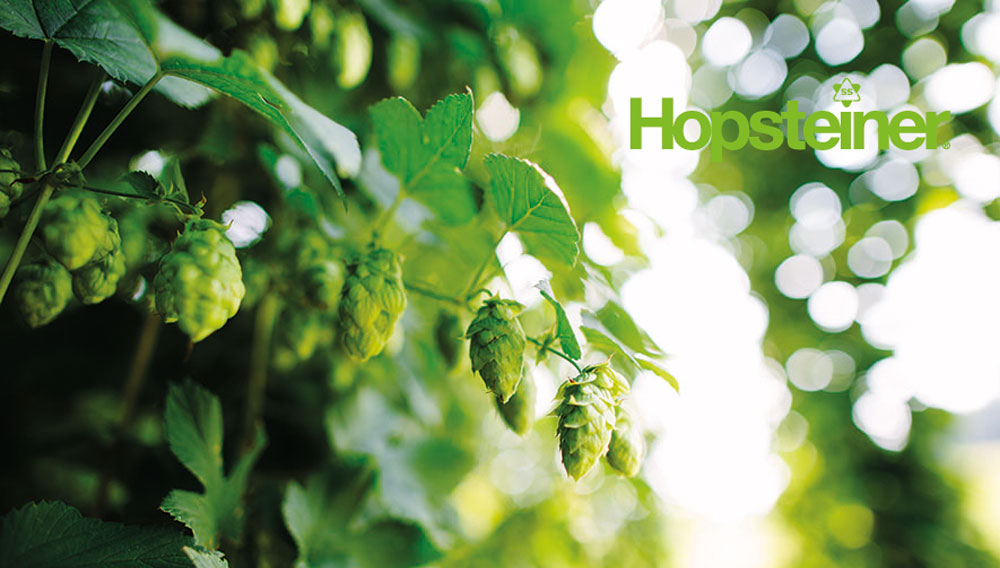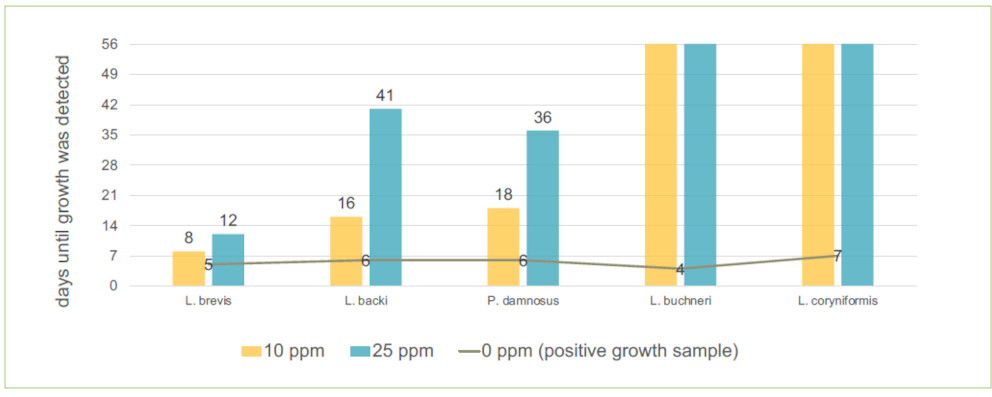The antimicrobial effects of hops
Technical Support | Hops “keep away certain putrefactions from beverages.” – a statement written by Hildegard von Bingen, in the herbal book “Physica“ from the 12th century [1]. In today’s language, this is equivalent to describing an antimicrobial effect that has been observed for centuries, not only in beer production but also beyond the brewing industry, primarily when gram-positive bacteria must be controlled or inhibited in biochemical processing, as feed additives or food applications.
Nowadays there is a huge range of hop products on the market. Hops and hop products are not only used in their conventional form, but also purified and modified types are available, containing components such as rho- or tetrahydro-iso-alpha acids.
In order to characterize the antimicrobial effect of the primarily used hop components in beer production today, we (in cooperation with the Research Centre Weihenstephan) have conducted a systematic testing of major lactic acid beer spoilers in combination with single hop compounds [2]. The latter were dosed in concentrations of 10 and 25 ppm and typical beer spoilers were added to these beer samples. The main objective was to determine the time until growth was observed in the presence of hops in two different concentrations. The positive control without hop addition was taken as the reference. As an example, for each combination of almost 200 single trials, figure 1 shows the results for the iso-alpha acids, the major bittering component in beer.
For the two strains L. buchneri and L. coryniformis the presence of only 10 ppm (or 10 BUs respectively) completely inhibited the growth (yellow bars), compared to the unhopped positive sample in which the two strains needed 4 and 7 days to grow (grey line). The other tested strains were clearly inhibited at 25 ppm at the latest (blue bars), but mostly 10 ppm already effected the growth to a certain extent. L. brevis is one of the most hop tolerant strains and iso-alpha acids showed only minor antibacterial effects compared to all other tested beer spoilers.
In our trials, the tetrahydro-iso-alpha acids in particular showed a remarkable reduction in the growth of the tested lactic acid beer spoilers (data not shown; see publication 2) but the usage is limited in commercial application due to the intense bitterness of this hop acid. However, we have observed a very similar behaviour regarding the inhibiting effect of alpha acids. Considering that alpha acids can reach considerable concentrations in late hopped beers and sometimes very high concentrations in dry hopped beers, this hop compound must be taken into consideration when hops are characterized to their antimicrobial effects. In this case the application of our AlphaExtract is another possibility that allows the brewer to add a natural preservative without changing the bitterness in a significant way [3]. We are pleased to assist with additional support () and would like to invite you to our next webinar about this topic!
References
1. Biendl, M. Hops and Health, Master Brewers Association of the Americas, Technical Quarterly 2009, vol. 46. DOI:10.1094/TQ-46-2-0416-01.
2. Michel, M.; Cocuzza, S.; Biendl, M.; Peifer, F.; Hans, S.; Methner, Y.; Pehl, F.; Back, W.; Jacob, F. & Hutzler M., The impact of different hop compounds on the growth of selected beer spoilage bacteria in beer, J. Inst. Brew. 2020, DOI 10.1002/jib.624.
3. https://www.hopsteiner.com/wp-content/uploads/2020/10/51_11_AlphaExtract.pdf


